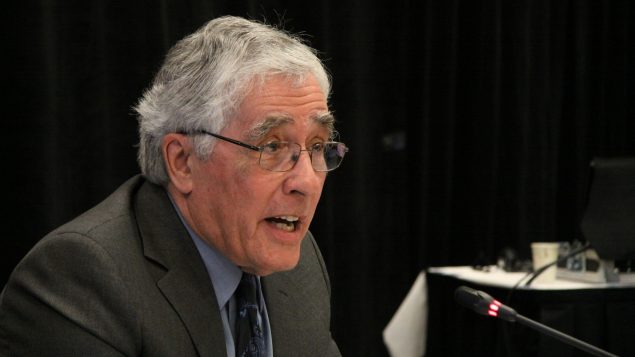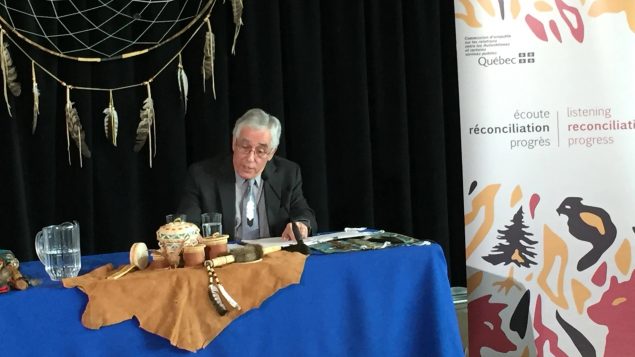The head of a public inquiry into the treatment of Quebec’s Indigenous people is calling on the provincial government to apologize to the First Nations and Inuit for the harm and “systemic discrimination” they have endured as a result of provincial laws, policies and deeply ingrained prejudices.
The recommendation tops the list of 142 calls to action released Monday by retired Superior Court justice Jacques Viens as part of his 520-page report on relations between Quebec’s Indigenous Peoples and the provincial government.
The Public Inquiry Commission also calls on the Quebec legislature to adopt a motion recognizing and implementing the United Nations Declaration on the Rights of Indigenous Peoples. It also calls on the National Assembly to adopt legislation ensuring that the provisions of the UN declaration are incorporated into Quebec’s legislative corpus.
These calls to action set the groundwork for proposed measures aimed at improving living conditions for Indigenous Quebecers and removing language barriers to give them better access to key public services offered by the province, including health, education, youth and social services, and justice.
For the first time in Quebec’s history, the report also calls on the provincial government to task the Quebec Ombudsman with monitoring and reporting on the implementation of proposed calls for action until they are fulfilled.
‘Robbed of their dignity’

Many existing laws, policies and practices are so discriminatory and inequitable that they seriously affect the quality of government services provided to the First Nations and Inuit in Quebec, said retired Superior Court justice Jacques Viens (CBC)
The inquiry was launched in December 2016 by the former Liberal government, under pressure to act in the wake of a Radio-Canada investigation into allegations of police misconduct against Indigenous women in the town of Val-d’Or, about 525 kilometres northwest of Montreal.
The commission was given a broad mandate to look into the treatment of First Nations and Inuit people in Quebec by the public service, including health care and youth protection agencies, the correctional system, justice and police over the last 15 years.
The commission heard or received submissions from more than 1,000 people.
“After 38 weeks of hearings in Val-d’Or, Montreal, Quebec, Uashat mak Mani-Utenam, Mistissini, Kuujjuarapik, and Kuujjuaq, and some 1,300 documents filed in evidence, it seems impossible to deny the systemic discrimination experienced by First Nations and Inuit peoples in their relations with public services investigated,” Viens said, presenting the findings in Val d’Or.
Existing government structures and processes show “a clear lack of sensitivity” to the social, geographical and cultural realities of Indigenous peoples, said Viens.
Many existing laws, policies and practices are so discriminatory and inequitable that they seriously affect the quality of government services provided to the First Nations and Inuit in Quebec, he added.
“More than their rights, thousands of people are being robbed of their dignity because they are kept in deplorable living conditions, at the margins of their own cultural referents,” Viens said. “In a developed society like ours, this is simply unacceptable.”
Ignorance breeds prejudice and stereotypes

Retired Superior Court justice Jacques Viens says the Public Inquiry Commission on relations between Indigenous Peoples and certain public services in Québec puts forward 142 calls for action. (Jean-François Villeneuve/CBC)
The roots of this systemic discrimination and the mutual distrust lie in the history of colonization, he said.
The insensitivity, which Quebec’s First Nations and Inuit experience on a daily basis, is also rooted in the public’s widespread ignorance of Indigenous history and realities, Viens said.
“Worse than ignorance, lack of knowledge brings its share of prejudices and stereotypes; stereotypes that have contributed to shaping the relationships between Indigenous peoples and public services,” Viens said.
“Disorganized, unable to take care of their own families and children, lacking knowledge, violent, dependent, careless about their health and property, privileged because they are exempt from paying taxes: let’s face it the list of prejudices against the First Nations and Inuit that, unfortunately, we still hear sometimes extends over a wide spectrum, from inferiority to privilege.”
Just a first step

Premier François Legault said his government he would look closely at the report and its recommendations (Jacques Boissinot/THE CANADIAN PRESS)
Michele Audette, a former commissioner with the national inquiry into Murdered and Missing Indigenous Women and Girls (MMIWG), said the proposed apology is only one of the steps the Quebec government needs to take to start repairing the relationship with its Indigenous communities.
“To say sorry it is something but it’s [what happens] after that is very important I would say,” Audette told CBC News.
Quebec Premier François Legault said Monday he would look closely at the report and its recommendations.
He said it’s clear previous provincial governments must bear responsibility for the poor treatment of First Nations people and Inuit.
“There are many worrisome things in the report and we need to change the way we provide services to Indigenous people in Quebec,” Legault said on Radio-Canada’s Tout un matin.
With files from CBC News







For reasons beyond our control, and for an undetermined period of time, our comment section is now closed. However, our social networks remain open to your contributions.